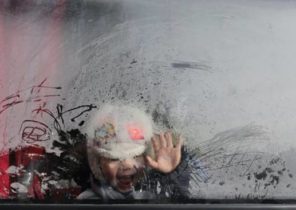
For most people stress is an integral part of everyday life. Although commonly considered a psychological problem, it can have physical manifestations, for example, on the skin. Stress can affect the skin in different ways, writes likar.info.
Stress can trigger the outbreak of hives.
Urticaria is convex red spots or scars. They come in different sizes and can be positioned on any part of the body. The areas affected by hives, itching. In some cases, when touched, they cause a tingling or burning sensation.
Urticaria can occur for a number of reasons, such as:
– exposure to cold or heat;
– infectious disease;
– some medications, including antibiotics;
The most common cause of hives is an allergen that enters the body. For example, a person with hay fever may develop hives as the result of exposure to pollen.
Emotional stress can also cause hives. In response to stress is a series of hormonal and chemical changes in the body. These changes may cause a dilation of blood vessels, resulting in red, swollen spots on the skin. The condition of the skin in case of urticaria may deteriorate due to the use of alcohol or caffeine, or from exposure to high temperatures.
In addition, stress can inhibit proper healing of existing skin problems. For example, it affects the psoriasis and eczema.
When you need to seek help
Rash can be considered acute if they are passed in less than 6 weeks. If the rash is not longer it can be chronic.
Usually the rash goes in a few days, in this case, there is no need to prescribe treatment. In other cases, you should consult a doctor.
Sometimes urticaria can cover the whole body or be accompanied by peeling of skin, blisters, fever, pain. Each of these symptoms may indicate more serious problems or allergies, so do not delay trip to the doctor.
Treatment
Treatment of stress rash can usually be done at home, using antihistamines sold without a prescription. They should help to get rid of itching. Cooling of the skin can also alleviate the condition. For this, you can take a cool bath or use a cold compress.
In more severe cases, your doctor may prescribe a short course of strong antihistamines, steroids or antibiotics.
The rash may be associated with the development of other conditions such as angioedema or anaphylaxis. In this case, the treatment will apply depending on the nature of the complications.
Prevention
The best way to prevent stress acne is to reduce the impact of stress. Unfortunately, it is not always possible. Certain stressors may be inevitable. For example, work situations or problems in the relationship. However, there are techniques that help a person cope with stress.
To minimize the effects of stress will help:
– regular exercise;
– a healthy, balanced diet;
– meditation or relaxation.
If you experience stress, it is important to minimize discomfort, which he accompanied, and to prevent deterioration.
Other causes of rash
– Heat rash. Exposure to hot and humid climate can cause the development of heat rash;
– Eczema. This chronic condition can occur at any age. It is characterized by small bumps on the skin that spread, forming a dense red patches known as plaques;
– Contact dermatitis. This disease is caused by an allergen, such as certain types of soap or precious stones, which come into contact with the skin;
– Pityriasis versicolor. Skin condition with large lesions, often surrounded by small bumps or rashes;
– Rosacea. This rash often appears on the face and may persist for weeks or months. It can recur despite treatment.







